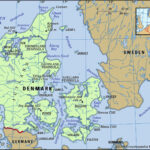William Shakespeare, the most celebrated writer in the English language and arguably the greatest dramatist the world has ever known, is inextricably linked to his birthplace. But where exactly was Shakespeare born? The answer lies in the historic market town of Stratford-upon-Avon, nestled in the county of Warwickshire, England. While the precise date of his birth remains a topic of scholarly discussion, the location is firmly established: Stratford-upon-Avon.
Although the exact day of Shakespeare’s birth in 1564 is not definitively documented, historical records provide a compelling approximation. Church registers in Stratford-upon-Avon indicate that William Shakespeare was baptized at Holy Trinity Church on April 26, 1564. It was customary during this era to baptize newborns within a few days of birth, typically around three days. Based on this practice, historians and literary scholars generally agree that William Shakespeare was likely born on April 23, 1564. Intriguingly, this date is also considered to be the date of his death, 52 years later in 1616, further cementing April 23rd as a significant day in Shakespearean lore. He retired to Stratford three years prior to his death, reaffirming his connection to his hometown.
Despite the global renown of his plays and sonnets, surprisingly little is definitively known about Shakespeare’s personal life. This scarcity of biographical details stems largely from his social standing. Unlike members of the nobility, Shakespeare was born into a middle-class family. His father, John Shakespeare, was a leather merchant and also served as the town bailiff, a local civic role. Consequently, information about Shakespeare’s early years is primarily derived from official records like baptism, marriage, and property documents.
A painted portrait of William Shakespeare, the renowned English playwright and poet, highlighting his enduring legacy in literature.
It is widely believed that Shakespeare attended the King Edward VI Grammar School in Stratford-upon-Avon. This institution would have provided him with a classical education, focusing on Latin grammar and literature, foundational elements for any aspiring writer of the time. Unlike many of his contemporaries from privileged backgrounds, Shakespeare did not proceed to university. Instead, at the age of 18, he married Anne Hathaway, who was significantly older and already pregnant. Their first child, Susanna, was born shortly after their marriage. Later, in 1585, the couple welcomed twins, Hamnet and Judith. Tragically, Hamnet, Shakespeare’s only son, died at the age of 11. Anne Hathaway Shakespeare survived her husband, passing away in 1623. The period between the birth of his twins and Shakespeare’s emergence as a playwright in London in the early 1590s remains largely undocumented, shrouded in mystery and speculation. Various unconfirmed accounts suggest he might have been involved in activities ranging from poaching deer to joining traveling theater troupes, working as a schoolteacher, or even serving as a soldier.
Shakespeare’s arrival on the London theatrical scene is first noted in 1592 through the critical remarks of fellow playwright Robert Greene. By this time, Shakespeare was already believed to have authored the Henry VI trilogy. His first published poem, Venus and Adonis, appeared in 1593, dedicated to Henry Wriothesley, the Earl of Southampton. By 1594, having likely penned early successes such as Richard III, The Comedy of Errors, and The Taming of the Shrew, Shakespeare joined the Lord Chamberlain’s Men as an actor and playwright. This company, later renamed the King’s Men under King James I, rose to become the leading theatre company in England, largely due to Shakespeare’s pivotal role as their principal dramatist. The company boasted the talents of Richard Burbage, the foremost actor of the era, and performed at the iconic Globe Theatre, situated on the south bank of the River Thames. Shakespeare remained with the King’s Men throughout his career until his retirement, often taking on minor acting roles in addition to his writing duties.
By 1596, Shakespeare’s company had already staged enduring classics like Romeo and Juliet, Richard II, and A Midsummer Night’s Dream. That same year marked a rise in the family’s fortunes, with John Shakespeare being granted a coat of arms, reflecting his son William’s growing wealth and prestige. In 1597, Shakespeare’s success allowed him to purchase a substantial house in his hometown of Stratford-upon-Avon, further solidifying his ties to his birthplace. 1599 saw him become a co-owner of the Globe Theatre, after producing his acclaimed historical plays Henry IV (parts 1 and 2) and Henry V.
Shakespeare’s Birthplace, a well-preserved Tudor house in Henley Street, Stratford-upon-Avon, recognized globally as the location of William Shakespeare’s birth.
The early 1600s ushered in Shakespeare’s era of great tragedies, commencing with Hamlet. The Merry Wives of Windsor followed, reportedly commissioned by Queen Elizabeth I who desired another play featuring the popular character Falstaff. The subsequent decade witnessed the creation of masterpieces such as Othello, King Lear, Macbeth, and The Tempest. In 1609, his collection of Sonnets, likely composed during the 1590s, was published, exploring themes of beauty’s fleeting nature and the enduring strength of love and art.
William Shakespeare passed away in Stratford-upon-Avon on April 23, 1616, and was buried at Holy Trinity Church, the same church where he was baptized. His return to and death in Stratford underscore the significance of his birthplace throughout his life. Even today, over four centuries later, Shakespeare’s plays are performed and read more widely than ever before, captivating audiences across the globe. In a vast body of work encompassing millions of words written over two decades, he captured the full spectrum of human emotions and conflicts with an enduring precision. As his contemporary Ben Jonson aptly remarked, Shakespeare was “not of an age, but for all time,” a legacy firmly rooted in the town where he was born. Stratford-upon-Avon remains a pilgrimage site for literature enthusiasts worldwide, seeking to connect with the origins of this unparalleled literary genius.

